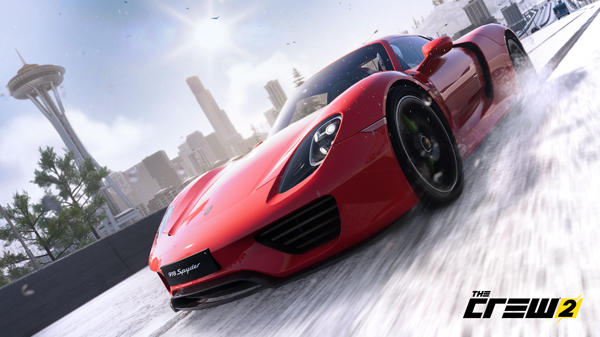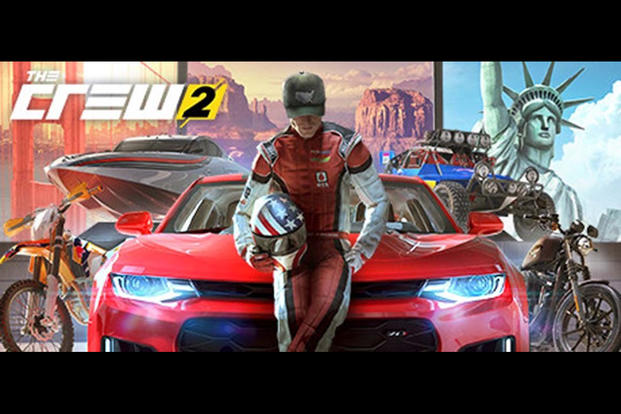Nathan Wertz is the editor of ThisAndThatTech.com.
Julien Carpenter is the Narrative Director for Ubisoft's "The Crew 2," an open world racing game which recently released and is now available for Playstation 4, Xbox One, and Windows. Julien details the path he traveled to his current position and gives some insights into the video game industry from a Narrative Director's perspective.
What has been your career path to your current position at Ubisoft?
I started as a video game journalist out of luck. I sent an application and the magazine was hiring freelancers. Worked on the paper for 3 years, then moved on to TV for 5 years, and became a videogame documentary director. After learning more and more about how games were made, I wanted to take a shot at creating them instead of reviewing them.
I had yet another break and was hired to work at Ubisoft HQ, where I slowly learned the ropes. After 4 years, I started in production, and over time, became Associate Narrative Director on "The Division," Narrative Director on "Trials of the Blood Dragon," before assuming that role on "The Crew 2."
How would you describe your job to a layman?
So I'm a Narrative Director. That means I'm the person who drives the narrative: what we tell, how do we tell it, why we tell it.
Storytelling in video games, especially in open worlds where there is no linearity or causality, is quite a challenge. You don't go from A to B to C like in any story. The Player can start at C, then go to F, then come back to A, and it's your job to make sure it's still understandable and cohesive.
It's partially storytelling, partially working on events to say, for example, that a jump over the Hoover Dam or from a sky jump are story moments allowing the Player to feel something. Your tools are not only dialogues and camera work, but also interactivity, world building, collaboration with the level designers (people creating the path) to make sure an event tells something.

What was your experience like working on "The Crew 2?"
Busy! Creating videogames has become harder, bigger, and more challenging every day. 15 years ago, games were 10 hours long and open worlds were a rare breed. Now, we're talking huge open worlds, dozens of hours of content, multiple gameplays, great sense of freedom for the player. There is a lot to be done, but it's also exhilarating. We all work in a media that always challenges itself, always evolves. That's tough, but great!
What did you specifically work on?
First, the overall story and its narrative design. Narrative Design means crafting a narrative map and then work on what rules we have to create to trigger the lines we hear throughout the game. As an example, if a Player is overpassed by a rival, that is a rule allowing a line to be triggered. Then I supervise the scriptwriters and the recording sessions with the actors. I also supervise cutscenes.
As an example, we have a mission called "The Accident." We have a voice-over explaining the context of the race, then the race itself, then a cutscene when an accident is shown. We get back to gameplay with a ride to the hospital with the wounded person and finally a cutscene telling something about the fact street racers help each other out. All those pieces combined form the story of "The Accident."
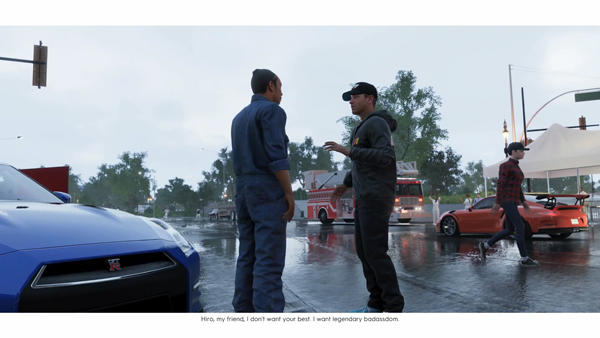
What are some "behind the scenes" type-work that your average gamer may not notice, but we should have an appreciation for?
Wow, that's a tough one. I'd say the fact that we have to build everything. You need to build the road, the countryside, but also a smooth blend between one and the other. You need to create the sun that'll shine, the reflections of that sun on the car, but also of all things lit by that sun. You need to work on the car physics, make sure the physics and the road work with one another, that the car handling changes if you leave the road, create AIs able to go through the path you shaped and be able to take shortcuts.
You also need to create the SFX of the leaves flying around because of your car, the dialogues and the triggers for them, what trees we'll find in the countryside, the traffic, the road signs, the stores. And then you need to make sure all of this works even if you fly by with your plane. And last, but not least, make sure all those details make for a fun experience.

If you can speak on it, why was "The Crew 2" delayed?
As said, games nowadays are humongous and we needed extra time for polish.
I noticed there isn't much visible vehicle damage when racing. I've heard in the past that some car companies don't like the idea of their product looking less than optimal in video games/movies. Is that still common in the video game industry, especially dealing with cars or licensed products?
I can't go too much into details because I don't know how these deals works, honestly!
But I can tell you the small damages was a team choice. There was more damage in "The Crew," but we realized that players played several hours to be able to afford a car and then spent most of their time with their car damaged because they missed a turn at 200mph. I don't know about you, but when I drive a virtual Ferrari, Lamborghini, or a Shelby GT500, I want it to be pristine.
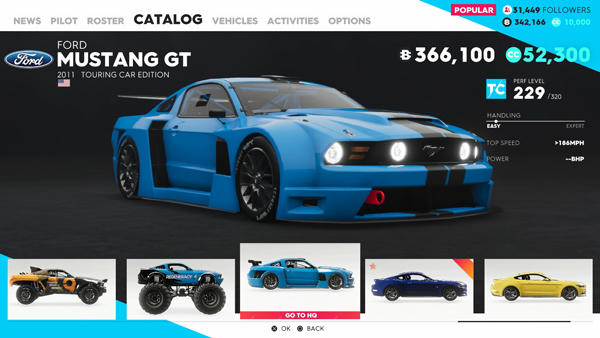
Any other moments in your career that stand out?
Well, I'm not the one deciding that, players are! All I can say is that I am really proud of the work the narrative team has done on the first "Division." The decision to create story threads to give you a purpose on one side, and audio recordings to give you the lore if you wanted it on the other side, really work, I think.
Honestly, I can't wait to see what the team have cooked up this time!
We always hear about burnout in the video game industry. Is it possible to have work/life balance in your field? How do you manage it?
Well, the sheer size of games these days sure implies a colossal amount of work. But this is a work we are lucky to do. We can't complain. Having that balance you talk about is doable most of the time.
Has your job ever required the assistance of military experts?
Sure. When I worked on the Tom Clancy brand. To do that well, we always do research. All Clancy games have at one point or another met with the military, or with law enforcement agencies. Of course, no one shares protocols or classified info, but they give us the little things. Anecdotes, tricks to blow off some steam, weapons knowledge and all those details to help us shape a better experience.
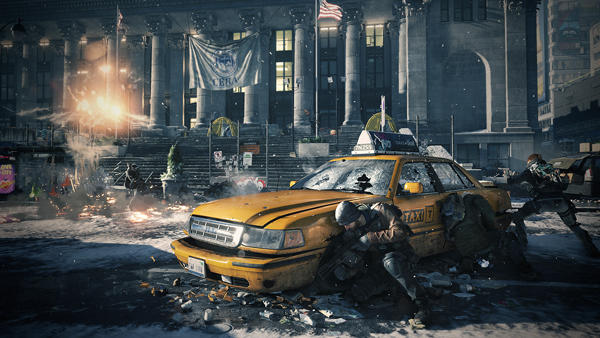
Any books, podcasts, or mentors that helped you along the way and that you would like to recommend?
Books? If you're interested in how games work, a "Theory of Fun" by Ralph Koster is always a good starting point. If you're interested in storytelling techniques, even though they don't always apply in videogames, the "Hero with a Thousand Faces" by Joseph Campbell is a given.
But besides that, I heard Steven Spielberg say to students the most simple but most valuable lesson: work your craft. That's how we'll all become better in our area of expertise, by working our craft.
Military.com has a lot of active duty and veteran readers that may want to someday work in your field. To get to where you are at today, what do you feel is the optimum path to travel? Any other advice for people just starting out?
I really think luck plays a role here. I was lucky. I never gave up, but one day someone gave me a shot. So maybe that's something? People will say no to you a million times, then try a million and one.
Replay a game you like and focus not on having fun, but on the area you're interested in. If it's narrative, try and understand how the narrative was made. If it's game design, remember it's based on rules, try to retro-engineer those rules. After all, we're all in the videogame industry because we're gamers.
